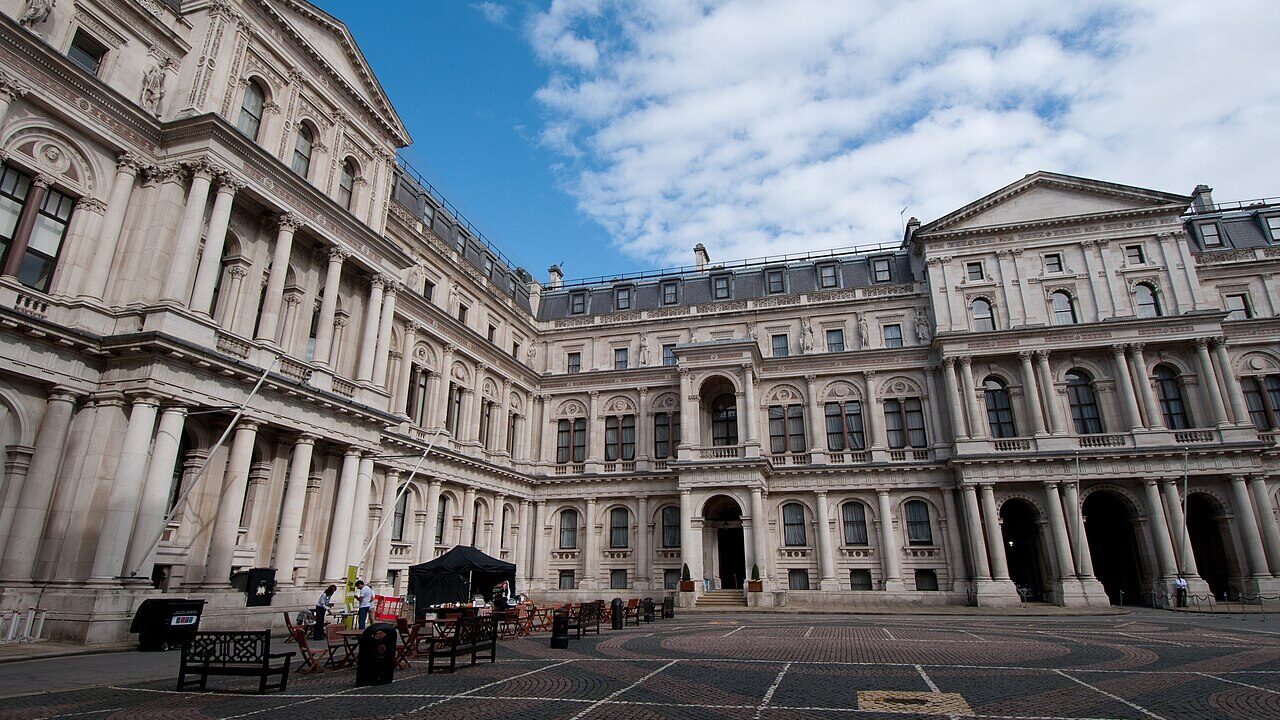Britain Removes Hay’at Tahrir al-Sham From Terror Organizations List
[Damascus] In a move that reflects a clear shift in British policy toward Syria, the British government has announced the removal of Hay’at Tahrir al-Sham (HTS) from its list of proscribed terrorist organizations, nearly eight years after it was first designated. The government said the decision comes as part of a comprehensive review of its foreign and security policies in the Middle East.
The British Home Office said in a statement that the decision followed “a thorough and detailed assessment” conducted by the government’s Proscription Review Team in consultation with executive partners and security and intelligence agencies. It stressed that “the safety and security of the United Kingdom remain a top priority, and the decision was not taken lightly.”
The government explained that the move aims to enable the United Kingdom to “enhance engagement with the new Syrian government led by Ahmed al-Sharaa, and to contribute to counterterrorism efforts, particularly against ISIS (the Islamic State), which continues to pose a threat to regional and international security.”
Hay’at Tahrir al-Sham was first placed on the UK terror list in 2017 as an “alias for al-Qaida in the Levant,” after it emerged as the most powerful armed faction in northern Syria during the war. However, shifting political and military dynamics in the country — including the formation of a new Syrian government following the fall of Bashar Assad’s regime — prompted London to reassess its position toward the group and its current role.
Give the gift of hope
We practice what we preach:
accurate, fearless journalism. But we can't do it alone.
- On the ground in Gaza, Syria, Israel, Egypt, Pakistan, and more
- Our program trained more than 100 journalists
- Calling out fake news and reporting real facts
- On the ground in Gaza, Syria, Israel, Egypt, Pakistan, and more
- Our program trained more than 100 journalists
- Calling out fake news and reporting real facts
Join us.
Support The Media Line. Save democracy.


The British Foreign Office emphasized that “the decision does not constitute direct support or political recognition of the group,” but rather reflects “a change in the approach toward dealing with influential actors within Syria in light of recent developments.” It added that lifting the ban “opens new opportunities for cooperation on issues of security, stability and reconstruction.”
Observers say Britain’s move mirrors similar actions abroad—most notably the United States’ decision months earlier to remove HTS from its list of Foreign Terrorist Organizations. Washington explained at the time that the group’s focus had become “more local than global” and that it no longer posed a direct threat to Western interests.
The new Syrian government welcomed the decision, describing it as “a positive development that reflects the international community’s recognition of the transformations witnessed on the Syrian scene.” It reaffirmed its commitment to “combating terrorism in all its forms and moving toward a phase of stability and development.”
Analysts, however, warned that the decision could stir controversy in Western political circles because of HTS’s historical links to al-Qaida. Others described it as “a pragmatic political step” intended to foster gradual engagement with influential players in Syria and secure Britain’s place in shaping postwar dynamics.
The decision is also expected to realign regional partnerships and prompt broader debate within the European Union over whether to reconsider its stance toward some Syrian factions, as the threat from transnational terrorist groups wanes and attention shifts to migration, humanitarian security, and reconstruction.
With this step, London appears to have opened a new chapter in its approach to the Syrian crisis — one based on engagement rather than isolation, and on reevaluating past designations in light of current realities — a move that could redefine political balances in Syria and the region.

